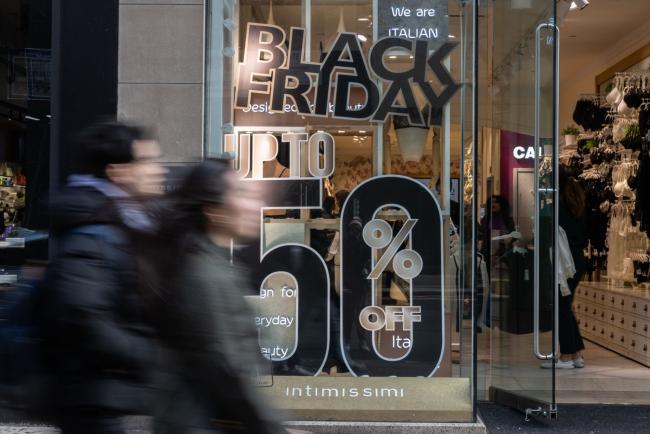(Bloomberg) -- A record 196.7 million American consumers flocked to stores and e-commerce websites over the Thanksgiving holiday weekend in search of deals, according to data from the National Retail Federation.
Retailers discounted generously on Black Friday and Cyber Monday this year in an effort to clear excess inventory and lure consumers who are increasingly strained by inflation. Those efforts drove foot traffic up: about 123 million customers shopped between Thanksgiving Day and Cyber Monday, a 17% increase from a year ago, the NRF said Tuesday.
The number of e-commerce shoppers rose by a more modest 2% from 2021, pointing to a “resurgence of in-store shopping,” following the last two years of pandemic restrictions, said NRF President and Chief Executive Officer Matt Shay.
Total average spend per customer was $325, up 8% from a year ago but below the prepandemic level of $362, according to the NRF. The results are based on a consumer survey of about 3,300 US participants.
“It’s been clear that American families and households have become a bit more cautious with their spending,” Shay said on a conference call. “Retailers have responded accordingly, offering shoppers a season of buying convenience, matching sales and promotions across online and in-store channels to accommodate their customers at each interaction.”
The vast majority of shoppers, about 90%, said deals were either the same or better than last year, according to the survey. Clothing, toys and gift cards were the top gifts purchased over Thanksgiving weekend, while the most popular shopping destinations were online, department stores and grocery stores.
More than half of consumers surveyed said they still had holiday shopping left to do, “leaving plenty of room for additional purchases in the remaining weeks of the year,” said Phil Rist, executive vice president of Prosper Insights & Analytics, which helped conduct the survey with the NRF. Ongoing discounts will likely support some of that spending into December.
Despite inflation and economic concerns, “you can get consumers engaged, but you have to deliver on value and price,” Shay said.

